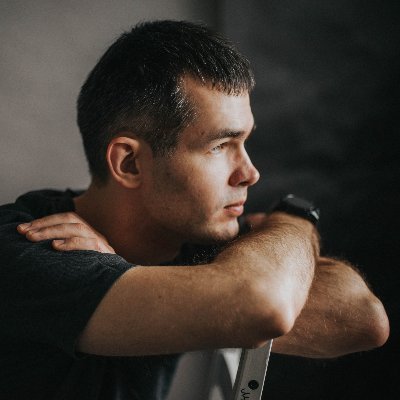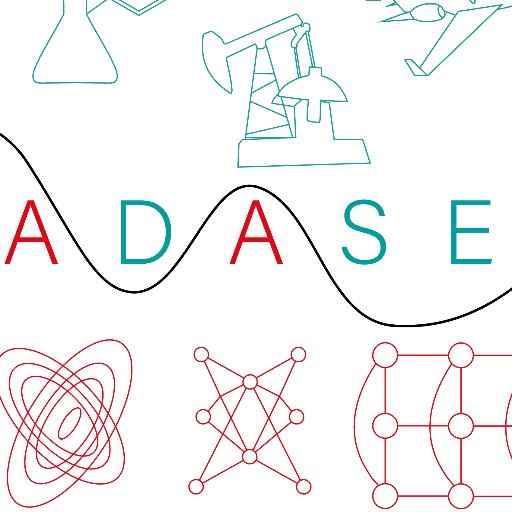
Evgeny Burnaev
@burnaevevgeny
Followers
383
Following
93
Media
11
Statuses
96
Excited to share the release of Sk3D: a new multi-sensor dataset for multi-view 3D surface reconstruction. Sk3D provides registered RGB **and depth** for 7 sensors of varying resolutions and modalities. #CVPR2023 Project: https://t.co/GRsPnWqjX9 Video: https://t.co/4CxRzlAJm7
0
18
54
At #ICLR2023 and interested to learn topologically correct representations? We will present our "Learning Topology-Preserving Data Representations" today (May 1)! Poster session 1 (#83), 11:30–13:30 Paper: https://t.co/4hJQBTfTsT
0
1
8
Arrived in Kigali for #ICLR2023 to present our findings on (Kernel) Neural Optimal Transport on Monday at oral (AD4, 15.00) and poster session 2 (#91), and on Wednesday at poster session 5 (#133)! Papers: https://t.co/sZxemk77CH
https://t.co/UlQrSnVsn6
0
5
16
Excited to share *DEF: Deep Estimation of Sharp Geometric Features in 3D Shapes* - our SIGGRAPH 2022 paper on reconstructing highly-accurate surface-based distance fields and wireframe representations of sampled 3D shapes. https://t.co/JeuF4JMAqz More in 🧵1/
3
9
40
We updated the code for "Making DensePose fast and light" to match the recent detectron2 version and released the weights! We also added the "Continuous surface embeddings" variant. Metrics got even better compared to the legacy version! github:
0
3
9
Feel the power of topology for NLP! Here is how Artificial Text Detection can be done via Examining the Topology of Attention Maps https://t.co/m2Wq0whxEV
@KatyaArtemov Accepted to #EMNLP2021 #EMNLP #TDA
1
2
19
"Random Fourier Features based SLAM" is all you need to efficiently localise your robot. Accepted to IROS https://t.co/Bdb6aZwGqh
@yeahrmek #IROS
0
2
6
Wanna know how to defend from adversarial attacks on your financial transactions? Then first you need to know how to do them! see our recent KDD paper https://t.co/1rDR4mrAuv
@likzet @artistadatos #KDD
arxiv.org
Machine learning models using transaction records as inputs are popular among financial institutions. The most efficient models use deep-learning architectures similar to those in the NLP...
1
2
10
A "Key to Efficient Online Aggregation of Functional and Probabilistic Forecasts" you can find in our recent paper about "Mixability of Integral Losses", accepted to Pattern Recognition journal! https://t.co/Wdw2Svpj17 Thnx to Alex Korotin and Vladimir Vyugin
0
1
7
Often wonder what is Optimal Transport efficient for? In our paper "Large-Scale Wasserstein Gradient Flows" we show how to solve the Fokker-Planck equation in a multidimensional case! https://t.co/UlBD7alSPQ Thnx to P Mokrov, A Korotin, Lingxiao Li @a_gnv @JustinMSolomon
0
3
30
Thanks to my wonderful collaborators Alex Korotin, Lingxiao Li, @a_gnv @JustinMSolomon Alex Filippov
0
0
2
"Do Neural Optimal Transport Solvers Work? A Continuous Wasserstein-2 Benchmark" gives an answer to this delicate question in our recent paper
1
3
5
0
0
4
Good news! 🎉 Our paper "Adversarial Attacks on Deep Models for Financial Transaction Records" with @RodrigoRivr @burnaevevgeny and other outstanding coauthors is accepted at #KDD2021! We know, how to attack financial transaction models and defend from those attacks. @kdd_news
0
3
8
“Reinforcement Learning for Combinatorial Optimization: A Survey” by Nina Mazyavkina, Sergey Sviridov, Sergei Ivanov, Evgeny Burnaev has been accepted to Computers and Operations Research! see https://t.co/yQgkKzkVwQ
#RL #optimization #graphML
arxiv.org
Many traditional algorithms for solving combinatorial optimization problems involve using hand-crafted heuristics that sequentially construct a solution. Such heuristics are designed by domain...
2
12
60
We are thrilled to announce our latest pre-print on the deep clustering of event sequences! Have you ever wondered how to cluster sequences of bank transactions? Or of patients' visits to hospitals? In this work, we show you how to do it using COHORTNEY!
arxiv.org
Cohort analysis is a pervasive activity in web analytics. One divides users into groups according to specific criteria and tracks their behavior over time. Despite its extensive use, academic...
0
1
5
WE ARE LIVE! The 3rd Deep Learning for Geometric Computing Workshop at #ICCV2021 is accepting papers and challenge submissions with 7 tracks of geometry processing problems in 2D/3D. Competitions with prizes, proceedings, keynotes! https://t.co/bzRbQEx3kb
#DLGC2021 #CV #3D
sites.google.com
News The workshop has started. You can join our live YouTube stream now. The workshop program is published. Paper submissions are now open! All challenges are now online and accepting submissions!...
0
4
11
@ECMLPKDD You closed the submissions on EasyChair more than 15 minutes before the announced deadline, 23:59 AoE (UTC - 12). It is still 23:44.
1
2
8
Help us spread the word!
Do you need financial assistance to participate in #ICLR2021? Applications are now open for free conference registration! Students and people from diverse backgrounds are especially encouraged to apply: https://t.co/GjvHh3I6i4
0
6
17
New papers accepted to ICLR 2021: - Continuous Wasserstein-2 Barycenter Estimation without Minimax Optimization, https://t.co/KHqRd3Oo5e - Wasserstein-2 Generative Networks, https://t.co/lNGeWouysz
#iclr2021
arxiv.org
We propose a novel end-to-end non-minimax algorithm for training optimal transport mappings for the quadratic cost (Wasserstein-2 distance). The algorithm uses input convex neural networks and a...
0
6
58









